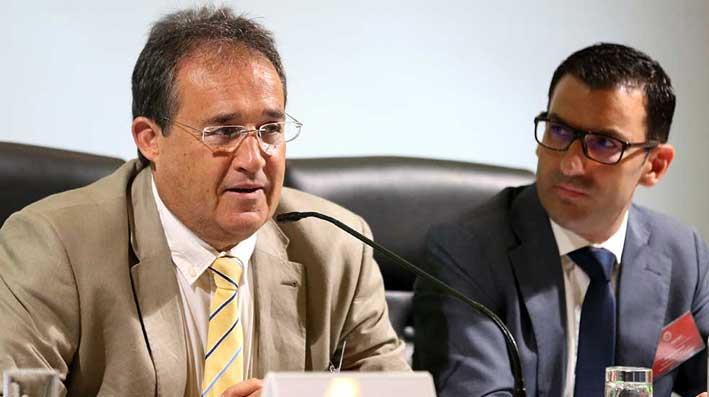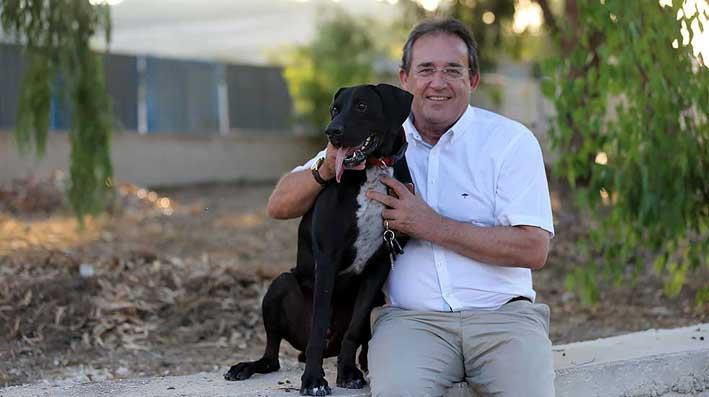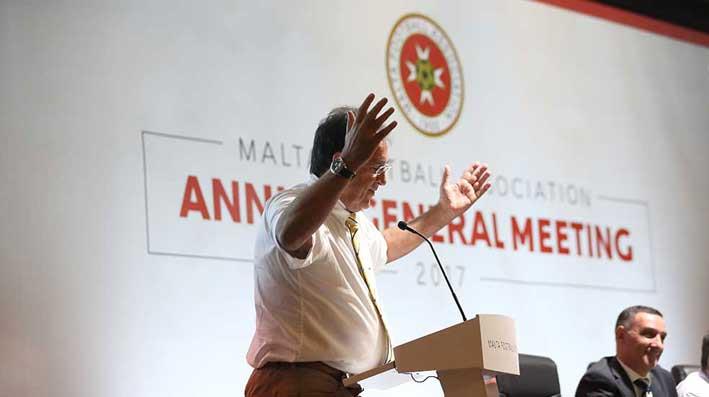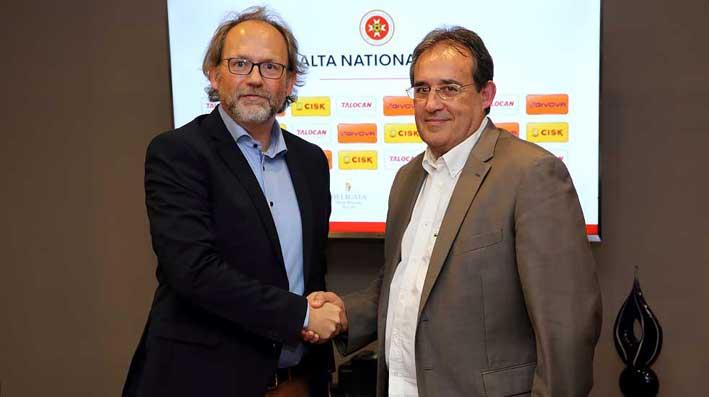Can we have your direct views regarding the recent suspensions announcement from UEFA for six local players?
As you are aware, these cases are under appeal and I prefer not to comment until all the processes and remedies open to our players against the suspensions have been fully exhausted, and the sentences confirmed or otherwise.
How can match-fixing really be eradicated and is the MFA doing enough to make this happen?
I do not think that match fixing, or any other form of corruption, can ever be totally eradicated: not as long as ‘homo sapiens’ walks the earth.
Corruption is primarily motivated by a culture that justifies the fact that people can do things for their own self-interest, without much thought for the consequences or any moral considerations.
As long as this ‘culture’ prevails, it will always be difficult to control match-fixing. Nevertheless, we must do whatever we can to prevent the spread of corruption in football and try to preserve the sport for our children.

In this regard, the MFA is probably one of the few football associations in Europe that has taken this problem seriously, which explains why so few cases apart from ours have been reported.
I strongly believe, however, that if we are truly committed to fighting match-fixing, we need to ensure that appropriate channels are in place by football administrators so that we are able to receive reliable information and, at the same time, completely protect the identity of the whistle-blower.
Unless such a system is in place, I do not believe we can make any noticeable progress in our fight against match-fixing. However, we will continue our fight with all the resources we have at our disposal, together with awareness and education campaigns for our players because, at the end of the day, the players are the determining factor.

Do you think Maltese football is still very much the target of match-fixing crooks?
I think that match-fixing thrives where specific circumstances exist that assist the process and encourage the practice. There is no evidence to support – and I have no reason to believe – the view that we are at the centre of the match-fixing world. On the contrary, we only make the news because we have serious people who go about their job in an honest way.
I do acknowledge, however, that circumstances exist that would encourage the practice of match-fixing. I am specifically referring to the fact that a number of our players are not paid their salaries on time: this is a serious shortcoming that could assist match-fixers when recruiting players.
Malta has been drawn against Azerbaijan, the Faroe Islands and Kosovo in Group D3 of the inaugural UEFA Nations League. How do you look at this newly-introduced competition?
The UEFA Nations League is a new and exciting concept in which all participating teams will be grouped with teams of similar strength. In our particular case, we will participate with teams that are ranked in the last 16 teams in UEFA and we have been drawn in the group consisting of Kosovo, the Faroe Islands and Azerbaijan. Eventually, one team from these last 16 ranked teams will qualify and make it to the EURO 2020 finals via a series of play-offs against other group winners.
This new competition will present new challenges to the MFA, since we will now be competing against national teams of similar strength. This means that the Maltese sporting public will have raised expectations for improved performances and results at national team level.
We are ready to meet this challenge and are looking forward to our participation in this new competition later this year.

Many people were ‘surprised’ by the appointment of Belgian Tom Saintfiet as Malta’s team coach. Do you think he can live up to expectations and lead the Malta team to positive results?
The appointment of Tom Saintfiet was mainly fuelled by the MFA’s desire to break the existing mould of what the post involved in the past and to seek to engage a person who would be willing and prepared to involve himself more in the day-to-day operations of the Technical Centre and to work with his technical staff on a full-time basis.
In the past, the role of the national team coach role was, in my opinion, more about team selection and tactical disposition in preparation for the handful of games that our national team plays every year.
We felt that, in our case, and given the glaring lack of a full-time professional league, the role of the national coach would need to be more of a hands-on daily approach, where the duties and obligations would include, amongst others, weekend scouting of all Maltese and Gozitan players in our leagues, collaboration with our Technical Director and active participation in our UEFA License Coach Education programmes, establishing a good relationship with the coaches of our member clubs with which our national team players are registered and maintaining direct regular contact with Maltese players who are playing in professional leagues abroad.
We also sought to engage a UEFA Pro Licence coach, preferably with international experience acquired with smaller nations.
This was the criteria that led to Tom Saintfiet’s selection, interviews and eventual appointment. Whilst I can never underestimate the importance and role of the position of national team coach, I do not believe that the position alone can guarantee future positive results. I think that there are many other factors that need to be fed into the equation before we can expect consistently better results.
One of our main concerns is the lack of professional league football in Malta. During the past 50 years of participation in UEFA and FIFA competitions, we have won five competitive matches – an average of one win every 10 years.
If we keep doing the same thing, we will keep getting the same results. We need a professional set-up at Premier Club level which will secure a platform that can furnish our national squad with a regular stream of young and talented full-time professional Maltese players who are focused only on football.
The MFA is presently looking into how the association can directly assist clubs in reaching this professional level.

How do you look back at your term in office to date and what are the next objectives/projects for the MFA?
I prefer to look forward rather than back and I will continue to work for Maltese football with energy, motivation and commitment.
As always, we have a number of projects in the pipeline involving infrastructural improvements, both at club and MFA level, initiatives aimed at increasing our income streams from new commercial partnerships, the introduction of new IT-based systems and information platforms that will completely change the way the Association operates in the future, reforms of our non-league clubs and amateur associations and a number of other initiatives aimed at increasing the overall professional set-up of our Association.
We will also continue to invest in what I consider to be the MFA’s greatest asset – our management and staff.
During the past few months we have recruited a very valid team of highly motivated people who are leaders in their particular fields and on whom the MFA can rely to keep our association at the cutting edge of creativity, best practice and good governance.
Youth development and coaching education are always top priorities for us. Our Technical Centre has become a hub for coach education and we want to keep moving forward in this area as we need to increase our pool of qualified coaches.
We also remain fully committed to boosting youth development as we want our young players to receive the best possible training and guidance to help them fulfil their potential. This is one of the main reasons why we are co-operating closely with the National School of Sport and we are looking at ways to further strengthen this partnership.

Are you satisfied with the number of foreign players taking part in local competitions? Do you think such a considerable number is lowering the chances of young local players getting a taste of Premier League football?
This issue is one that involves a number of factors and on which there are valid arguments, both for and against.
Personally, I would prefer to have fewer foreign players in our leagues. I recognise the fact that clubs have the right and the duty to strengthen their teams, but they find this very difficult to do because of the very limited number of local top players that are available for transfer.
Foreign players provide a constant pool of talented players to whom clubs can turn if they want to strengthen their squads. This strengthens the arguments in favour of foreign players in our leagues. We also need to balance this argument and look at the effect that this could have on our own domestic leagues and on the dwindling pool of players that have the talent to play in our Premier League and also our national teams.
We need to find the correct balance and come up with an acceptable number that respects all arguments. It is not an easy issue and there can never be a perfect correct solution – the situation is very fluid and circumstances change continuously.
I think it is more a matter of constant dialogue and communication with the clubs. Of course, related to this is the issue of sustainability and the financial stability of our clubs, with particular reference to our Premier League clubs, which are now operating with budgets that are beyond sustainable levels. This is of greater concern to the MFA.
The BOV Premier League is, as from this season a 14-team competition. Although the current league is still at the half-way stage, can you say that it has turned out to be successful, despite the criticism about the local standard remaining at a mediocre level?
From the feedback that we have received from the majority of the clubs taking part in the Premier League, it appears that the switch to a 14-team Premier League with two rounds, has been a success, as it has fitted in perfectly with our football calendar, eliminating the need for mid-week games which previously brought put a lot of pressure on the administration, the clubs, the referees and the players themselves.
The new format also creates more ‘Premier League’ space and gives the lesser-ranked clubs the motivation they need to try to seek promotion to the top division, where they can enjoy a season or two at top level with all the benefits and media coverage that this brings to the clubs and, more importantly, to the players themselves.
We are presently witnessing an interesting season, with no fewer than six clubs battling it out for the coveted top three UEFA places and another six clubs involved in the relegation and play-off positions at the bottom of the table.
I believe the level of the League is determined more by the quality and skills of the individual players that take part, together with the level of professionalism of our Premier League. I think this is where we need to focus if we want to raise the bar at club level.